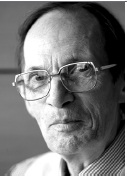I heard a lovely piece of music played the other night. It was “Nights Bright Days,” which is a quotation from a sonnet by William Shakespeare— and the composer is Phillip Neil Martin. This is a first, short orchestral work by a very young man. It is romantic, it harks back to the bard. It builds to a climax, by stages—all interwoven in a way that pleases the ear.
When played on Sunday, May 25, as part of a program of younger composers performed at the Opera City Hall at Hatsudai—one stop from Shinjuku on the train—this drew a resounding “Bravo!” from a chap seated next to me at the concert. He was a Japanese businessman and was moved to shout his big “Hurrah” into the burst of applause in the hall. It turned out that we both knew Phillip, and had reason to be happy for this brilliant young man, over from London.
Amazing. What gets a short work—the piece takes 13 minutes—performed by a top quality symphony orchestra over here in Tokyo, just like that? The person responsible is the late Toru Takemitsu—Japan’s best-known and best-loved composer of the contemporary variety. Takemitsu died seven years ago, but he bequeathed a scheme for encouraging young composers, the world around, called the Takemitsu Prize. Every year, there is a competition and a winner is declared after the finalists’ pieces have been played in Tokyo.
The prize, I am told, has emerged as the leading award for younger composers in the world today. The auditorium, the other night, when the 2003 pieces were played in the presence of the composers—two from Japan, one from France, one from Italy, one from the UK—was fairly packed, not just with young people, but a fair admixture of students and older pros.
I talked to Phillip before the concert—once up at Opera City, a couple of days in advance, and then again at the Foreign Correspondents Club. He gave me a copy of the score of “Nights Bright Days” and went over it with me, to show how the structure goes. He hummed the piece, as he went—he is studying at the Royal College of Music in London—with thoughts on how he might lightly re-do the structure.
Such exchanges, I imagine, were taking place elsewhere in Tokyo, as the young composers gathered in the city. Phillip, I discovered, was about to hear his piece played for the first time—by the Tokyo Philharmonic. There were to be no less than four rehearsals in the days leading up to the concert.
Isn’t it remarkable that this prize has sprung up here in Tokyo? I think so. Each year there is one judge—that is what Takemitsu decreed. This time round he was George Benjamin, a well-known British composer. He had the formidable task of reading 100 scores “blind”— meaning that he had no idea who the composers were. The scores were gathered in Tokyo, sent to him in London and read by him alone. On that basis he selected the finalists.
The merit of this procedure is obvious. The judge has no idea whom he is selecting; he chooses the pieces on purely musical grounds. The same judge, I may add, had the tough task of deciding—after listening to the pieces in concert—on whom to confer the 2003 Takemitsu Prize.
By this time, he knew the identities of the composers and had met them all. Who was it to be? The one person Mr. Benjamin could not choose was his fellow Brit—I suppose, sadly. The first prize went to Joel Merah, a more experienced French composer of 33.
No hard feelings, but what a pity. I felt thoroughly torn by the experience of listening to five pieces—only one of which sang to me—and not hearing the composer of that work named the winner. On the other hand, would it have been better for Phillip, now 23, not to have ventured over here? Hardly. He loved this country, he told me.
He went through the same experience that many of us have had, in our first days here—of encountering total strangers, who came to his rescue and shepherded him about, when he was lost. He was taken aback by the way people came to help him navigate through the subway system. He couldn’t believe it. In London, no one would have lifted a finger to help.
These are little things, but they set a person’s compass for life. They did mine. The same care and consideration—if on a global scale—was shown by Toru Takemitsu, when he created the prize that bears his name.
How did this come about in Japan, you may ask? Why here? Why not somewhere else? Well, there is a special atmosphere hereabouts. And as Louis Armstrong is supposed to have said on the topic of swing— if you can’t feel it, ma’am, you ain’t got it.
Bravo, Takemitsu, Bravo!









